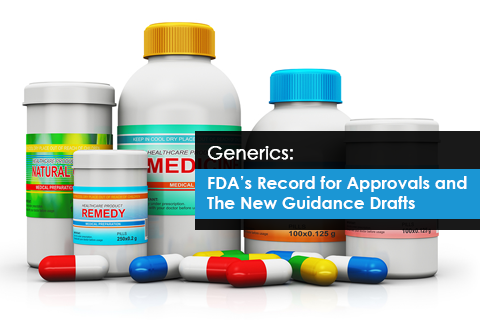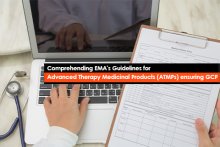Do you know? The United States Food and Drugs Administration (US FDA) has yet again set a new record for the number of generic drug approvals. In comparison to FY 2017’s 937 approvals, FDA has approved a total of 971 generic drugs, so far this year which includes 781 final approvals and 190 tentative approvals. Out of the total approvals in this year, 12% were for complex generic drugs.
The rise in number of approvals is an indication that the USA has a huge market for generic drugs. In an attempt to make applicants align with the rising number of approvals, FDA has released one revised and one new draft guidance to advance the development of generic transdermal and topical delivery systems (TDS).
Following are the new and revised drafts along with the new guidelines:
1. Irritation and sensitization
The new guidance gives recommendations for ANDA sponsors to design and conduct studies to evaluate irritation and sensitization (I/S) potential. In order to prove that the potential for a skin I/S reaction with the T TDS is no worse than the reactions with R TDS, applicants should perform a comparative assessment of the generic and reference TDS products using an appropriately designed skin I/S study with human subjects. According to the guidance, both the studies should be conducted under relatively provocative situation and with a small sample of population to maximize the potential for I/S reaction.
The guidance further defines the terms of evaluation of study design and conduct, consideration for statistical analysis (viz., irritation analysis and sensitization analysis) and overall assessment of event data and outlines the format of data submission.
2. Assessing Adhesion
The revised guidance is built on the draft which was released in June 2016. The document provides guidelines for the evaluation of the adhesive performance of a TDS. It gives the applicant a choice of evaluation pathway depending on the objectives of a TDS product development program. The two options are:
- Evaluation of TDS adhesion in clinical studies performed to evaluate TDS adhesion only
- Evaluation of TDS adhesion in clinical studies performed with a combined purpose (e.g., for the simultaneous evaluation of adhesion and bioequivalence (BE) with pharmacokinetic (PK) endpoints)
The guidance also defines rules for study design and conduct, consideration for statistical analysis, combined evaluation of adhesion and bioequivalence and outlines the format of submissions.
More number of generic drug approvals clearly showcases FDA’s intent to make them easily accessible for the end user. In this way there might also be a good scope for more competitors and thus decrease in prices. But what is required for the manufacturers or applicants is more scientific and Regulatory clarity to cope up with the competition. To give clarity on such Regulatory and scientific information requirements, FDA is in plans to release an umbrella guidance which is expected to be followed by a series of targeted guidance documents to address legal issues.
With the streamlined generic drug review, there is a dire need for manufacturers to keep a track of upcoming guidance documents. To decode them and address queries related to generic drug applications with FDA, consult a Regulatory expert. Stay up-to-date. Stay compliant.





